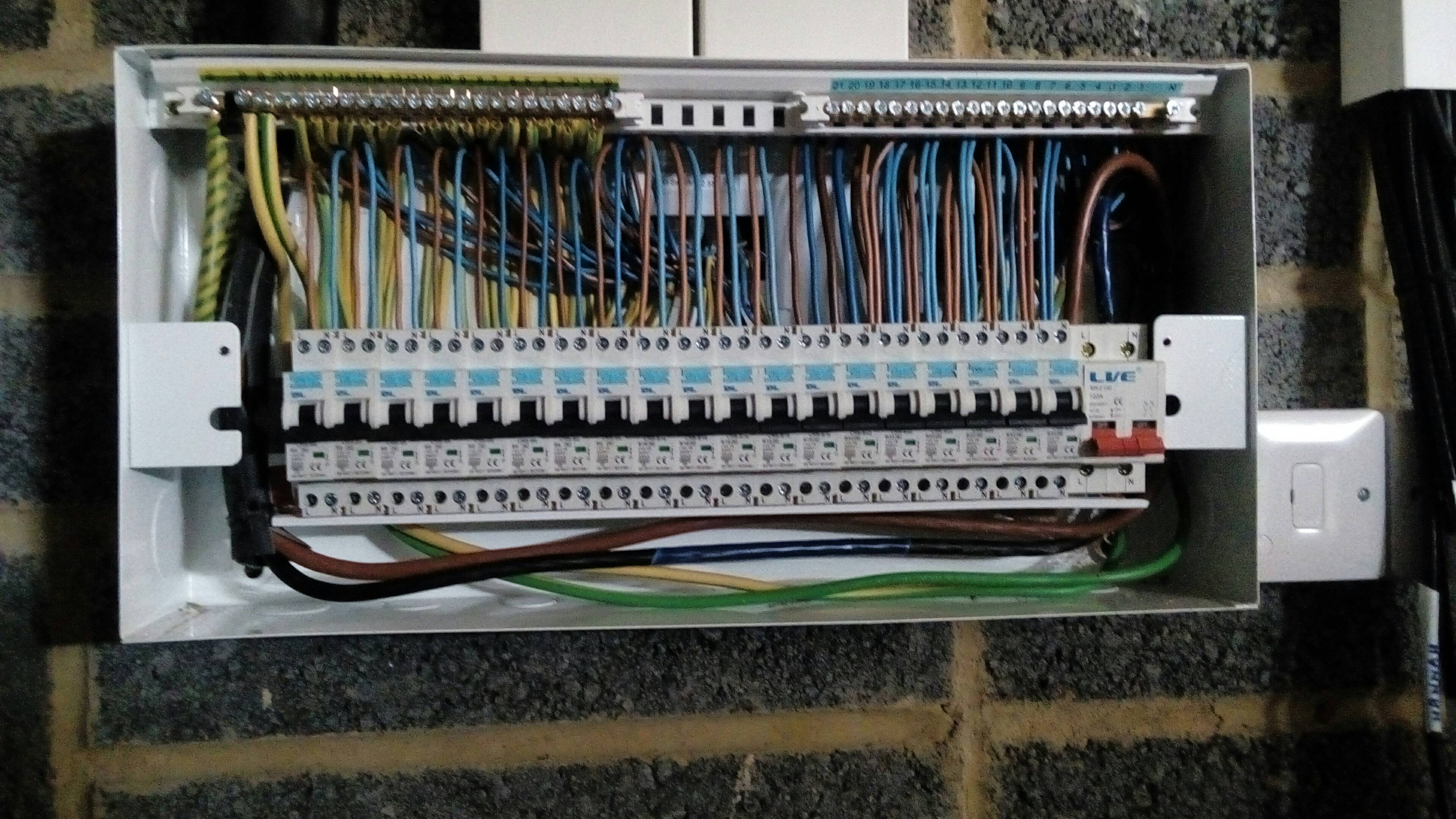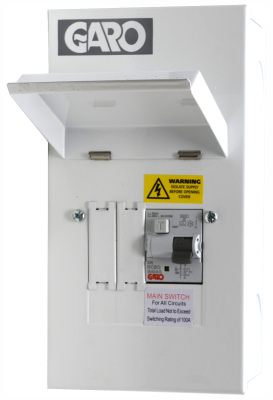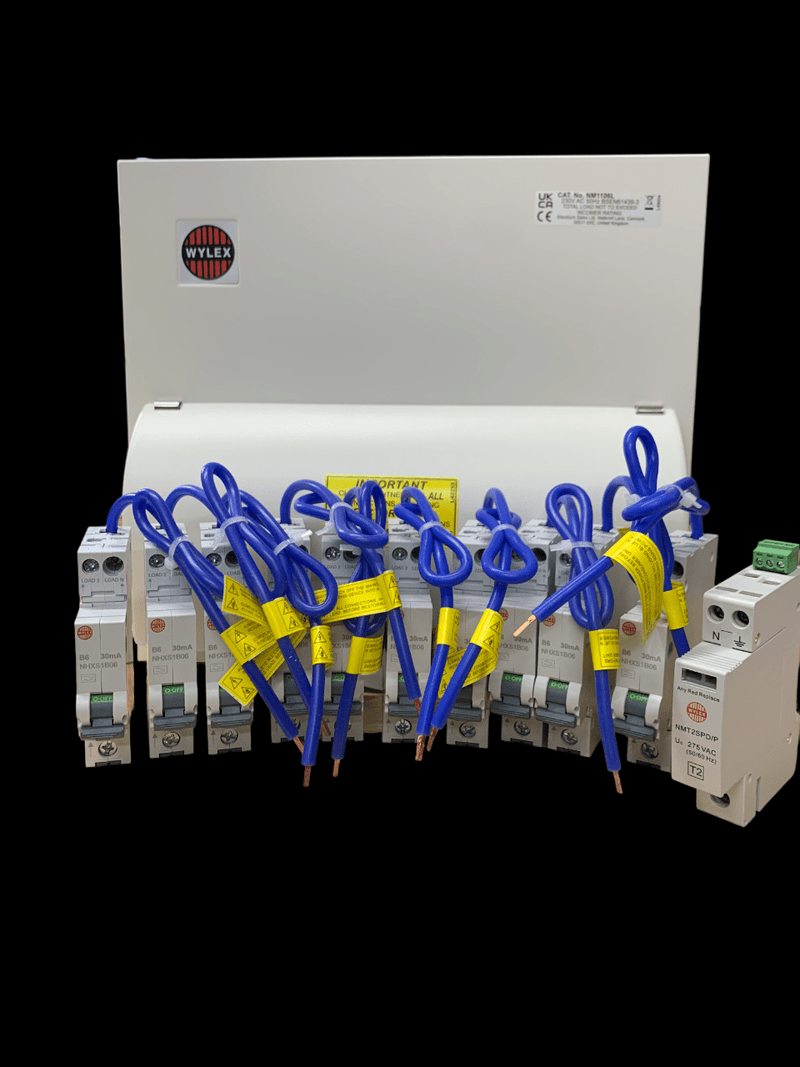A Comprehensive Guide to Preserving Your RCBO CONSUMER UNITS Successfully
A Comprehensive Guide to Preserving Your RCBO CONSUMER UNITS Successfully
Blog Article
The Function of Customer Devices in Effective Power Administration Equipment
Customer units are indispensable to efficient power monitoring systems, offering as the main circulation points for electrical power within structures. The advent of clever technologies has actually additionally improved their performance, permitting for real-time information tracking and nuanced energy consumption evaluation.
Comprehending Consumer Devices

Recognizing the duty of customer systems begins with recognizing their necessary feature in guarding electric systems. By isolating faults within specific circuits, customer systems avoid extensive outages and prospective fire risks. This seclusion is attained with the use of breaker that trip or fuses that impact when a mistake is discovered, thus removing the electric flow to the affected circuit.
In addition, customer units facilitate the well organized distribution of power, enhancing the performance of energy use. They enable the methodical management of electric tons, which can be particularly essential in commercial and industrial settings where demand can fluctuate dramatically. Properly kept consumer units add to the durability of electrical systems and assist in lessening downtime created by electrical failings, ultimately sustaining the seamless procedure of energy-dependent centers.
Smart Technologies Integration

A key benefit of smart consumer devices is their capability to take advantage of progressed formulas and artificial intelligence for anticipating analytics. This permits preemptive modifications based upon use patterns, weather prediction, and various other variables, dramatically enhancing total efficiency. Clever customer systems help with need response programs, where power usage can be dynamically adjusted throughout height periods to stabilize the grid and decrease expenses.
The integration of eco-friendly power resources, such as solar and wind, is also streamlined via clever customer devices. By wisely handling the intermittency of these sources, these units ensure a trusted and balanced energy supply. In addition, wise consumer units enhance individual interaction by offering detailed understandings and remote capabilities with mobile applications, cultivating a more proactive strategy to energy conservation and sustainability.
Monitoring Power Consumption
Building on the capacities of wise innovations assimilation, keeping an eye on power intake becomes an essential focus within power management systems. By leveraging sophisticated metering framework (AMI), real-time data on power use can be accumulated at granular degrees, offering important insights into usage patterns and peak need periods.
Smart meters and Internet of Things (IoT) tools play a crucial duty in this surveillance procedure. These gadgets can track energy usage in real-time, transmitting data to centralized systems for analysis. The collected data is then refined through advanced formulas to spot abnormalities, anticipate future usage, and recommend optimization strategies. Furthermore, cloud-based remedies offer scalable platforms for storing and examining big datasets, helping with remote monitoring and control.
The combination of these modern technologies not just empowers consumers with in-depth details concerning their power use yet additionally sustains energy suppliers in managing load distribution much more properly. Inevitably, precise and constant tracking is vital for attaining power efficiency, price financial savings, and sustainability objectives within energy administration systems.
Optimizing Home Appliance Usage

One effective method involves determining height and off-peak hours to move energy-intensive activities, such as laundry or dishwashing, to times when energy need is lower. This not only reduces strain on the grid but likewise maximizes lower energy tariffs. Additionally, incorporating equipment knowing algorithms enables predictive upkeep, guaranteeing home appliances operate at optimal performance and lengthening their life expectancy.
Power management systems can additionally integrate user-specific preferences and actions to tailor appliance use schedules. Wise lighting systems can readjust brightness based on tenancy and natural light accessibility, while Heating and cooling systems can keep comfort levels without extreme energy usage.
Promoting Sustainability
Promoting sustainability within energy management systems includes not just boosting performance but also fostering ecologically responsible techniques. Customer systems are indispensable to this process, as they supply real-time data and control systems that allow users to keep an eye on and decrease their power consumption. By leveraging sophisticated technologies, consumer devices can identify energy-saving chances and facilitate the combination of eco-friendly energy resources like solar and wind power.
One crucial facet of promoting sustainability is informing customers on the advantages of accountable energy use. Through comprehensive insights supplied by customer systems, customers can make enlightened choices that minimize their carbon footprint. For instance, these units can recommend ideal times for running high-energy devices based on grid demand and renewable resource availability, thus reducing dependence on nonrenewable fuel sources.
In addition, customer systems support the adoption of wise grid modern technologies, which boost the total efficiency and dependability of energy circulation. By enabling two-way interaction between consumers and energy providers, these systems can dynamically web link change to power demands, lowering waste and promoting making use of sustainable power techniques.
Conclusion
Customer systems, as important elements of power management systems, substantially improve electrical safety and performance within structures through circuit defense and smart innovation assimilation. Real-time data monitoring and analysis facilitated by these devices enhance energy usage and appliance use. Furthermore, the unification of eco-friendly energy resources promotes lasting practices, adding to decreased total energy intake and lower carbon footprints. As a result, customer devices play a critical duty ahead of time both energy performance and ecological sustainability.
Advancements in wise modern technologies have actually reinvented the abilities of power monitoring systems, particularly through the integration of wise consumer systems.Building on the abilities of wise innovations assimilation, keeping track of energy usage comes to be a crucial focus within power monitoring systems.Reliable appliance usage optimization is a critical read what he said component of energy management systems, aiming to enhance efficiency and reduce unnecessary power intake.Customer systems, as important parts of power administration systems, dramatically boost electric safety and efficiency within buildings with circuit defense and smart technology integration. Additionally, the consolidation of sustainable power sources promotes lasting techniques, adding to lowered overall energy usage and reduced carbon footprints.
Report this page